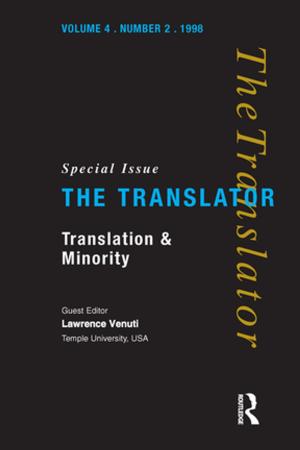Managing Human Resources in Latin America
An Agenda for International Leaders
Business & Finance, Management & Leadership, Management, Human Resources & Personnel Management| Author: | ISBN: | 9781134301737 | |
| Publisher: | Taylor and Francis | Publication: | May 7, 2007 |
| Imprint: | Routledge | Language: | English |
| Author: | |
| ISBN: | 9781134301737 |
| Publisher: | Taylor and Francis |
| Publication: | May 7, 2007 |
| Imprint: | Routledge |
| Language: | English |
In addition to providing the reader with a thorough overview of the trends in HR strategies and practice and the challenges faced by HR executives in Latin America, this book also explores cultural issues critical to conducting business and understanding human resource management in this region.
Structured in two distinct parts, Davila and Elvira's comprehensive book moves from a general overview of the economic, managerial and leadership styles found in Latin America to the current status, role and importance of the HR function in a variety of country-specific chapters including Argentina, Brazil, Chile, Mexico, Central America and Panama. Expert scholars from the region and abroad highlight how regional characteristics affect HRM practices according to the particular development of each country, and country specific chapters focus on:
- aspects of key institutional determinants of HRM practices (such as laws, politics, economy)
- the current status, role and importance of the HR function in most firms
- review practices including pay, staffing and labour relations
- trends for the near future.
Written from a Latin American perspective, and by contributors with interdisciplinary backgrounds, it features topical, original research and forms an essential component of the Global HRM series, complementing the other texts. Using up-to-the-minute case studies, this text is invaluable reading for academics, students and practitioners of HRM, personnel management and international business alike.
In addition to providing the reader with a thorough overview of the trends in HR strategies and practice and the challenges faced by HR executives in Latin America, this book also explores cultural issues critical to conducting business and understanding human resource management in this region.
Structured in two distinct parts, Davila and Elvira's comprehensive book moves from a general overview of the economic, managerial and leadership styles found in Latin America to the current status, role and importance of the HR function in a variety of country-specific chapters including Argentina, Brazil, Chile, Mexico, Central America and Panama. Expert scholars from the region and abroad highlight how regional characteristics affect HRM practices according to the particular development of each country, and country specific chapters focus on:
- aspects of key institutional determinants of HRM practices (such as laws, politics, economy)
- the current status, role and importance of the HR function in most firms
- review practices including pay, staffing and labour relations
- trends for the near future.
Written from a Latin American perspective, and by contributors with interdisciplinary backgrounds, it features topical, original research and forms an essential component of the Global HRM series, complementing the other texts. Using up-to-the-minute case studies, this text is invaluable reading for academics, students and practitioners of HRM, personnel management and international business alike.















